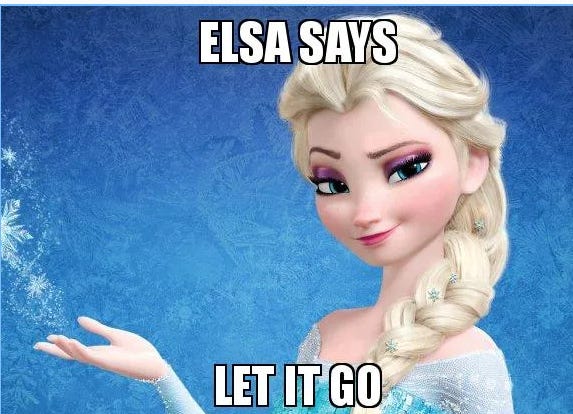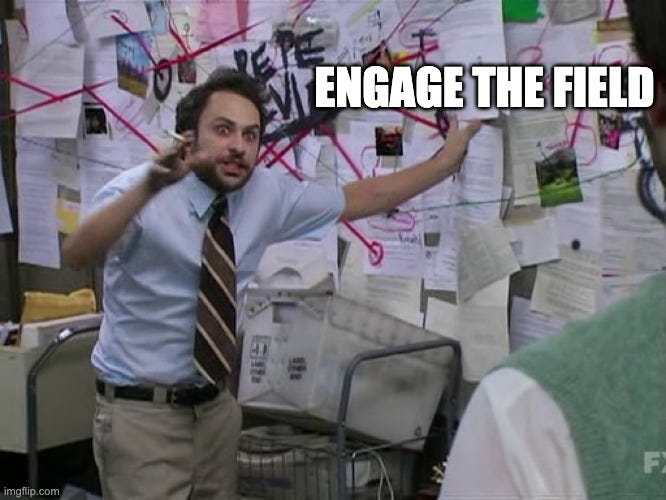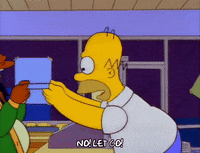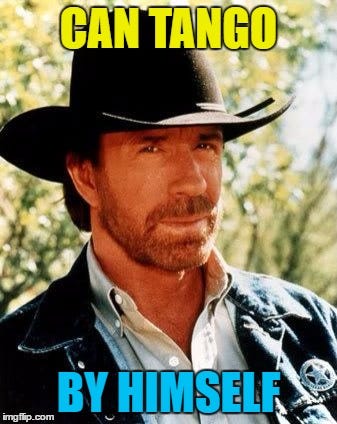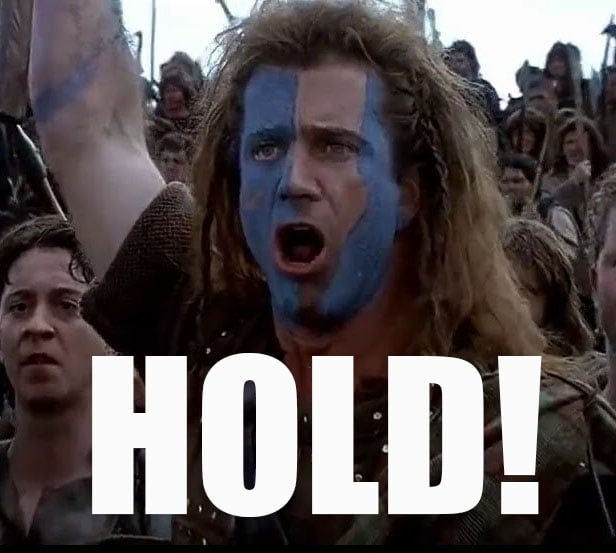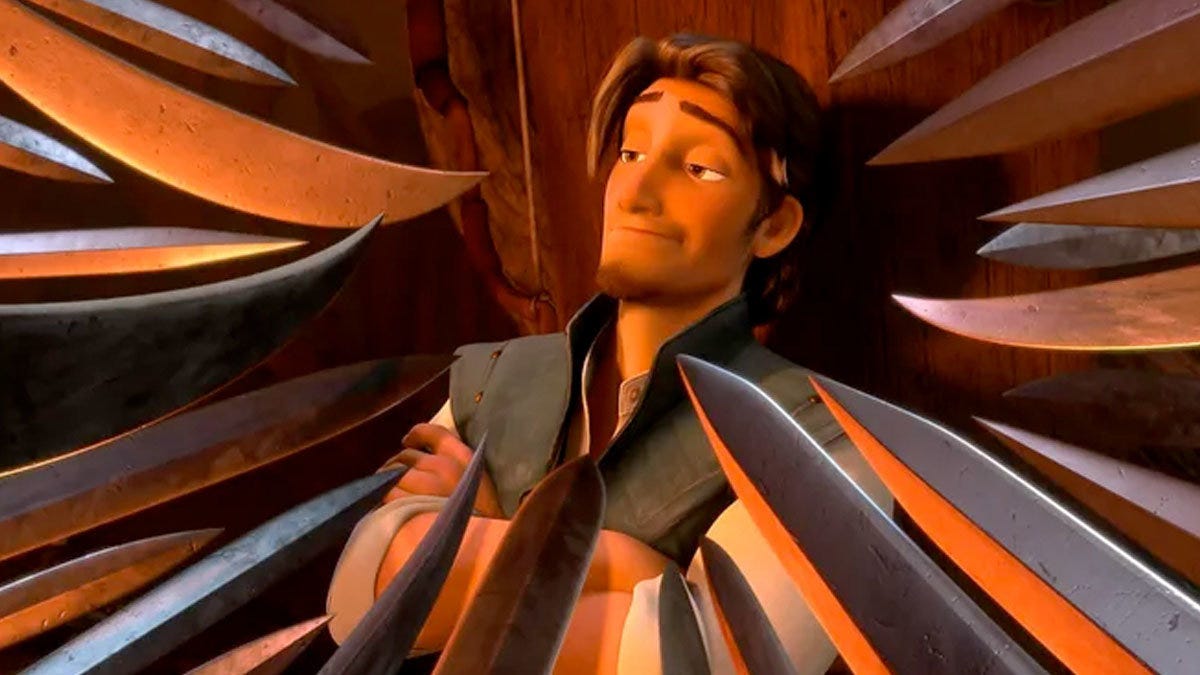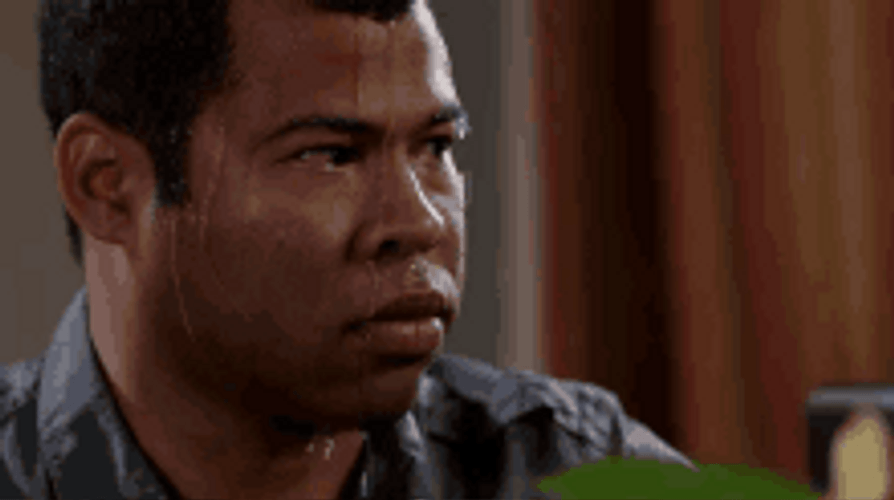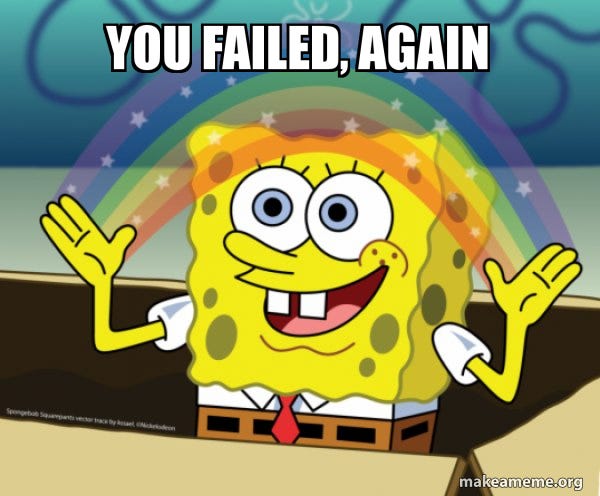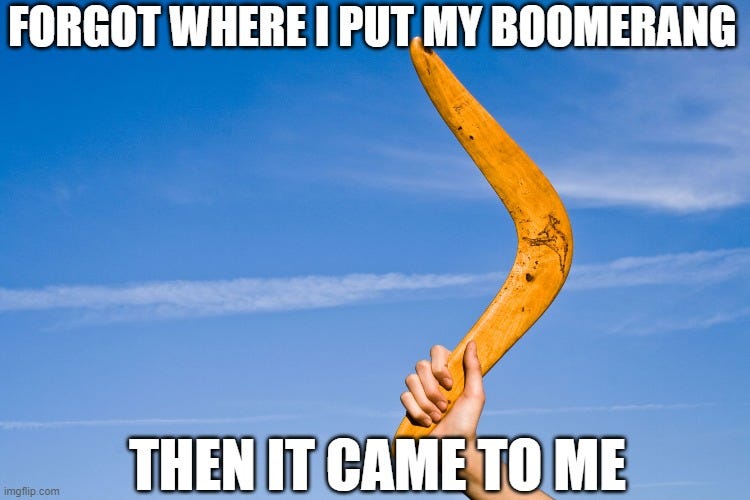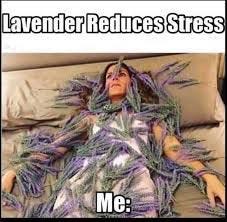"For the next two days, this is what I want you to keep top of mind …"
Nic Peterson is standing at the front of the room, whiteboard behind him. It's March 1st 2024. The Guardian Academy Event.
He's pointing to three words behind him.
"Engage the Field."
That was the opening of a door we had no idea we were going to walk through.
And walking through it has revealed insight, understanding, and reality I didn't know existed until I had walked through it.
It's been the seed that's grown and fed every article and move we've made in The Guardian Academy since then. Every step we take revealing new understanding of what this really means to us and the people who take value from the work we are doing here.
It's why we launched The Arena.
When I saw those words it was like a catalyst, and since then I've circled away and back to it over and over.
Today I want to give YOU something to keep top of mind.
Two words.
"Let Go."
Again I find myself circling around deeper understanding, in all of my writing, in life, with my kids, with my parents, with the world that is happening around me.
And this keeps showing up.
Let Go.
Letting Go - The Story of Our Greatest Fault?
This is such a universal human challenge that so many of our great stories have the concept woven through it.
Captain Ahab's inability to forgive and let go of his desire for vengeance. Gatsby's fixation and idealized vision he held onto of Daisy. Frankenstein's insistent hold on his ambition. Macbeth's obsession and lust for power. Dorian Gray's hold on his desire for youth. Skywalker's grip the reality he thinks he understands. Every single story ever told of someone who held onto the memory of the past and couldn't move forward with the life that was now happening in the present.
These all make fantastic stories for two reasons.
One, the inability of the character to let go of something that, from the reader's perspective is obviously BAD, creates an interesting tension and thread for dramatic storytelling in general.
But, Two, it also connects deeply with our own humanity.
Because each of us almost certainly has something in our life that we have a hold on and can't let go of. A vision of what we think our life is or want it to be. The idea of something that we wish to have or to hold, to cherish, to remember, to not "lose" even if we have objectively long lost it.
And sometimes, we frame this grasp on desire as something that is motivational and powerful.
Especially when it's something we greatly desire to have or be.
After all, our story is not written yet, and maybe the key is to just keep hold of our dreams and always strive toward them!
Perhaps the reason we do this is because the whole time, we are afraid if we let go of that desire, that interest, that vision ... we are afraid we won't ever get it back.
We are so afraid that we won't get what we want in life if we Let Go, and we are afraid of being afraid, that we have gone to GREAT lengths to reframe the perspective of holding onto vision and belief in ourselves as signs of strength and character.
But ...
Is it not a greater strength to let go of your desire in the trust that you will find it again within yourself when it's necessary?
This is The Way
I want to share my personal perspective on the power of Letting Go,
What it feels like to write this very article and why I need to Let Go to do it.
I have a job - or perhaps more accurately a responsibility - here in The Guardian Academy to bring to you engaging and useful insight and understanding of TGA Philosophy and Principles on a weekly basis. Sometimes that's application of those to Strategy like business, fitness, health, family, relationships, etc.
Sometimes it's a different thread in the Philosophies and Principles themselves.
We say in TGA, wisdom comes from multiple perspectives, because we know that as we grow and learn and apply, when we revisit an idea, a concept, a principle, it can take on new meaning, you can gain new understanding each time you grow and revisit.
We know that sometimes, the 100th time you see something, said slightly different, said from a different voice, it finally clicks.
And I have this job, this responsibility, to catalyze that for you. Each week. Week in week out without fail.
While through this work I've figured out how to uncork the dread that is writers block, to find a process where I can write always whenever I sit down without fail, where I still have Resistance, but instead of beating Resistance or running away from it, I just learned to Tango ...
I still face the Demon of Fear.
Fear that my writing won't be useful to you.
Fear that what I put up here isn't as insightful as I think it is.
Fear that you'll read what I write and say "What the fuck is this?"
It's all just a different mask on the Demon of Resistance. As a writer, fear that my ideas are going to be rejected is probably the most common form that Resistance takes. I've learned to Tango with him, and he Tangos back, whispering in my ear the whole time.
I keep going on.
But I have had that fear.
Until recently, I learned something new about it.
That I have held onto the idea that it's my responsibility for you to get "value" or understanding from my writing.
And the Demon uses my grip on that.
Even as I write this, the truth is obvious. That ultimately it's beyond my responsibility for you to get value. That the "value" the "insight" the "understanding" is beyond anyone's responsibility.
The responsibility YOU have is to yourself, to do what you must do to learn and grow.
To act in alignment with your words.
I believe no matter what it's everyone's responsibility to grow with intent and with presence.
Because like it as not, you ARE growing. Biologically. If you don't intentionally grow along with your biology, you will end up as a child in an adult's body.
So it is your responsibility to yourself to learn and grow.
And what is learning and growth, class?
Same situation, different behavior.
Learning (and growing) is finding yourself in the same situation again and having different behavior than you did before. It's putting your hand on the burner, getting burned, and then not putting your hand on the burner again. It's getting slapped, and then next time dodging the slap.
It's reading a book and getting some insight, and then later on reading the book again and going "how the hell didn't I see it that way before?"
Because you grew.
MY RESPONSIBILITY ...
As your writer.
(I now see)
Isn't to help you grow or get new insight.
Is to show up, and as fully and completely, and clearly as I can, share my insight on all of this.
Because it's merely in the showing up, as clearly and fully as I can, that opens the door of opportunity for something new.
The rest is up to time, life, randomness, human behavior.
And really, even if you read this and think “that’s cool” but then don’t apply it (don’t Engage the Field), it’s really just entertainment for you.
(Entertainment isn’t bad, just be real with yourself about what you’re doing here)
But here's what really set me past the fear - what neutralized all that whispering the Demon of Resistance does when we're in the Tango.
After writing and publishing something like my 50th article on TGA, I read someone's reaction. They had read the article and discovered something new about themselves.
And it was NOT what I was imagining when I wrote the article, but it was very real and very powerful.
That was me thinking I was going to make a specific impact.
That I was going to create a specific understanding.
That I was crafting these pieces thinking "Here's this awesome new perspective on XYZ that people can take and apply to help them in these situations."
Not necessarily untrue.
But the way I see it now,
My real value is not in making something happen, it's in opening the door - and letting go of all that may or may not happen or be true after that point.
The real value is the possibility of tipping that domino of growth. That experience you have when you revisit an idea for the 100th time and something tiny clicks, and all the whole world makes sense anew to you.
New understanding.
I can't control that even for myself as a reader, let alone the writer.
That happens because of all the things I did before I got to the writing to begin with.
If I just Let Go, and accept that the value of my contribution is enough all in itself, knowing that for the right person at the right time, when they sit in the space of my work it might just make that tiny piece click ...
And THAT is enough.
This is why Dr. Jeff Spencer tells us to never devalue our personal contribution.
We don't know what impact we as individuals are going to have on others, and what seems like something small and insignificant to ourselves can be*the one thing that someone else needs to hear.
The way forward, to lean into this, is to allow it to be.
It's to not hold onto the idea that what I write and publish will get any kind of reaction or outcome I only have to acknowledge that showing up is enough, and it's up to anyone else for there to be goodness in it.
Holding On
But,
Let us not vilify holding on.
Because we can't actually Let Go if we aren't holding onto something to begin with. The holding on isn't bad. And in fact, when we can recognizing in ourselves when we are holding onto something, that is giving ourselves the gift of being able to Let Go.
Letting Go is not a loss.
Letting Go is a gifting act to yourself that balances out Holding On, and reveals the center of who you really are between the two.
Between Holding Onto the idea that I can make some significantly impactful writing, and Letting Go of that need to have any specific impact with my writing ...is the writing itself. It's the clear unencumbered work of expressing what I believe needs and wants to be expressed about the idea before me.
I can't actually see that if I don't both Hold On and then Let Go.
So,
Now that I've illustrated the power that Letting Go has had for me
Let's talk about how YOU can use "letting go" to help you get what you want in life.
The Power of The Sword
Because what is letting go if not cutting the connection to the idea that I have control over anything other than my own actions.
I can't MAKE you take understanding from my words.
I can only open a door.
Letting Go is what you must do in order to effectively Engage the Field.
Beyond that first step you take, everything is out of your control. And yet, everything that happens out of your control IS SO IMPORTANT.
What often holds people back is uncertainty and fear.
When we don't know what is going to happen we are more likely to not take an action.
In our process of growth you can see where this is a problem.
Because inherent to the act of Engaging The Field with an unknown, is the uncertainty of what will happen when we do.
This is why many people, when they DO Engage the Field, end up not progressing afterward because what's actually happening for them is they are holding onto the idea of what they think should have happened from Engaging the Field.
To take Laurel Portié's ad program as an example. When you start in that program, there is a 7 day process to go through, and then you enter an ongoing 7 day flywheel, where you continually make and put ideas out into the field to gather the data of understanding.
It's a literal and practical application of our learning process.
Consume (read/watch)
Reflect (idea from reading/watching)
Engaging (putting idea into action - aka, making an ad around the idea)
Reflect (observing what happened, new ideas)
Revisit original source and content
If you Engage while holding onto the idea of what the outcome is going to be, even what you hope the outcome is going to be (conversations in the case of the $5 Ads Strategy), then when you reflect on what happened you're forcing a comparison from what you expect to what was real.
I expected conversations. I got none. Therefore failure.
Not only is that not true, but you are interrupting the flow of the learning process itself by injecting your idea of what should be into the process.
What you think should be,
Does not matter.
Cut it.
Cut the cord to that thought that you are holding onto.
Let Go of your expectation.
Letting Go is a Gift To Your Own Power
Writing is letting go.
I used to be afraid of not having what I needed when it came time to write.
That would lead to some obsessive behaviors with regard to ideas.
Here's an example:
I'd be in the middle of a conversation with someone, at dinner, walking through a store, whatever, and I'd suddenly have an idea.
The idea would be just a kernel. And interesting seed. But one which, insofar as I felt in the moment, could blossom into something magnificent.
I'd stop immediately,
Mid conversation,
Whip out my phone,
And jot the idea down.
Or I'd wake myself up as I was close to falling asleep at night.
Or I'd obsessively hold onto it if I had nothing to write with - if I was driving, or in the middle of something I couldn't interrupt.
It's funny because I've never been a "note taker."
But I was always afraid of losing my ideas.
Now,
I've embraced a different perspective.
It's not easy.
But now I try to let go.
I have decided that, ideas which come to me which are ideas I may want to lay seeds about, write about, explore, stem off to other ideas ... I have decided they are already here with me. Whether I write them down or not, they are here.
And that actually if I let go of the idea, let go of my hold onto that idea, let go of trying to not forget the idea, if it's an important idea, if it's one that I really do want to explore, it will return. It might return in a different form, but it will be all the better when it does.
A few perspectives.
What returns is a signpost
I know that when I have an idea, and I don't write it down, I don't try to remember it. If I let that idea go and then it comes back to me ... that's a really good idea.
At the very least, it's an idea which is repeatedly coming to the forefront of my consciousness and therefore, in alignment with my view on writing (as Receivership), it's something I really want to be writing and considering.
This doesn't have to be about writing.
Let go of something you are obsessing about or are trying to get or have. Let go of your hope in having it. Let it all go.
If you see it again, you have all the stronger knowledge and understanding that it's important.
If you don't, you've made room for that which is.
It's about trust.
Do I trust myself with my process, with my belief, with my actions, with the direction I am traveling?
I try my best to make my decisions and actions in accordance with a Solvable Problem™️. Where I know where I'm headed, and I have certainty of the path in getting there. When it comes to ideas for writing, if I'm on a path, and the idea shows up and I let go of it, if I'm still on that path later, it will most likely show up again.
But the path sometimes changes. Every step you take reveals new information, which can alter the path.
And therefore sometimes ideas or desires which I let go of don’t show up again, and that’s because my path has changed. I have to trust I’m on the right path.
It's about unburdening yourself.
There's nothing quite as overwhelming as having too much information, too many choices, too many ideas. For me, it is far easier to have 3-5 ideas in front of me that stand out and resonate which I can write from, than it is to have 100.
I only need 3-5 seeds that feel right. Sometimes I'll seed new seeds, and weed out old ones that don't fit.
But I don't need a ton of ideas. I just need to be receptive and aware of the ideas which come to me which are valuable to me.
Letting go is an unburdening.
This happens at every level.
When I have the idea and am not in a place to jot it down, or don't feel like being burdened with it, I'll intentionally let it go in order to allow it to speak again the future.
When I have seeds down, and some of those seeds are speaking to me, it's jumping into them and nurturing them until the voice says "that's good" and then letting go of the need to make it more than it has become.
When I have a full blown piece written and ready to go, it's letting go of the constant voice and need of perfection to say "but is it enough?" "is it good?" "do we need to do more or do different?" It's acknowledging that the real value of the piece is not what I've done to it, but what someone else might get from it in their own experience with it.
I have to let go in the end. When I hit publish. That’s the end of my road with that piece of writing.
And again, this doesn’t have to be about writing.
That is often my frame of reference.
I could write this entire article about parenting :)
Because in every aspect of living life to our full potential, we all have something to let go of.
But don't just let go of what you think you're holding onto ...
Let Go of Everything
Let go of need.
Let go of control
Let go of tension.
I wonder how many people reading this right now are *HOLDING* some kind of tension in their body. Tension in their shoulders. Tension in their jaw. In their back. In their hands, their wrists. Their breath.
Let go of the future.
Let go of the past.
It's always only ever you, its only ever here, it's only ever now.
But you can trick yourself into thinking it's more by holding on. Holding on to the thing you hope will be, holding onto the thing you wish still was.
Let go.
You can't do anything about was or will be. You can only do something about the step you are taking now.
Don't blindly step.
There is a purpose in looking forward, to see where you hope to go, to establish a path in that direction. But beyond that ...
Let go.
Letting go allows you to Engage the Field completely.
Because letting go is to let go of the expectation or idea of what the outcome from your action will be. It's to say "I'm taking this action because I believe this is the clearest most certain step on a path to get what I want" and then to say "the outcome doesn't matter except that I get one, and silence can be an outcome, and that I take that outcome to inform my next step."
It's to let go of THINKING. It's to let go of DREAMING.
It's to be in the moment so that no matter what happens you can say "well that was interesting, and now what?" Even if you think you know what is best.
LET GO.
Let go of your hope.
Let go of your fear.
Let go of your hate.
Let go of your joy.
Let go of your happiness.
Let go of your sadness.
Does this sound crazy? Fucking try it. Let go of everything until all you have left is your breath.
And then let that go.
Trust that it will come back to you.
You'll never be more present than in the moment when your breath comes back to you, and that's all you have.
Because the truth is that IS all you have. Ever.
Until you don't.
And you move on.
At which point you're going to have to Let Go anyway.
So you might as well get fucking good at it.
I've come to understand that so many of our challenges in life, so much of our emotional strife, our fear, our heartache, our hatred, our anger, our worry ...
It's because we hold on.
We hold onto things we don't actually have.
We hold onto them in different ways.
We hold onto other people's emotions by eating them.
We hold onto fear by clenching our muscles without realizing it.
We hold onto our anger and worry by grinding our teeth into pain.
We hold onto all of it by holding our breath.
We hold onto the moment we're in where we feel good because we're secretly afraid we'll never feel good again.
We hold onto today because we don't realize that we aren't ready or interested in facing tomorrow.
We hold onto what feels certain, because we are afraid of existing for any period of time in the uncertain.
Just remember,
The holding on is giving you the gift of being able to let go.
And in Letting Go,
You'll find the space between the two that is your true self and your greatest power.
Be Useful. Be Present. Love the Journey.
Joseph Robertson, CMO The Guardian Academy
Engage in discussion with the author and TGA+ Community in the comments below - give us your 6WU and/or thoughts after reading. Together we make a rising tide that lifts all ships.
Ready to apply your ideas to reality? You may find our Engage the Field Handbook a useful and effective resource.
Get your hands on awesome unique swag and opportunities by sharing this article. We treat our ambassadors like royalty :)




